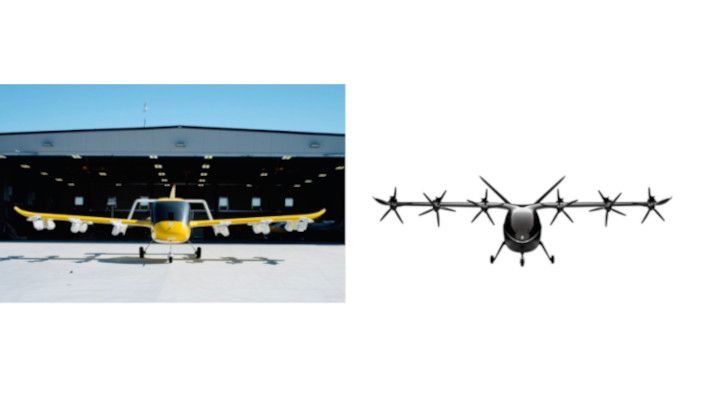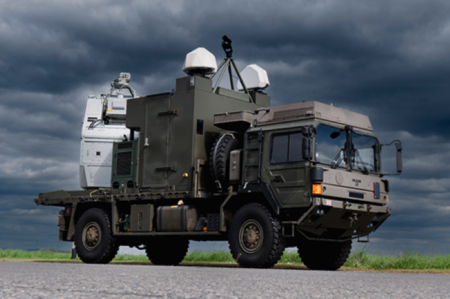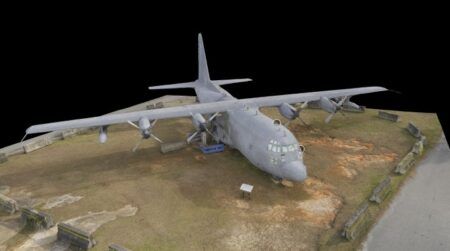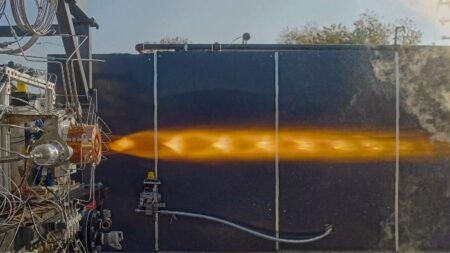Autonomous air taxi developer Wisk has filed a lawsuit in the USA alleging its competitor Archer has stolen trade secrets, test data and copied the design of its Cora aircraft.
The 73 page lawsuit, which Archer said it intends to defend itself against has been filed in the US District Court in San Jose, California and seeks an injunction to stop Archer using Wisk’s intellectual property (IP) and monetary damages.
Wisk is developing Cora, an all-electric self-flying eVTOL that seats two people, has a top speed of 110mph (180km/h) and a range of 62 miles (100km). Cora operates at altitudes between 500ft and 3000ft above ground level and uses 12 lift fans to take off and land. It uses a single propeller for fixed wing, forward flight.
Wisk was established in December 2019 as a joint venture between Boeing and the Kitty Hawk Corporation. Kitty Hawk, which was launched in 2015 by Google co-founder Larry Page started developing Cora in 2017, but can trace its technology development back to 2010 by his company Zee Aero and the Z-P2 prototype.
Wisk has conducted around 1,500 flights in several prototypes The company is developing its sixth generation aircraft and flight testing in New Zealand. In November it announced a research partnership with NASA looking at ways to integrate autonomous aircraft into urban airspaces.
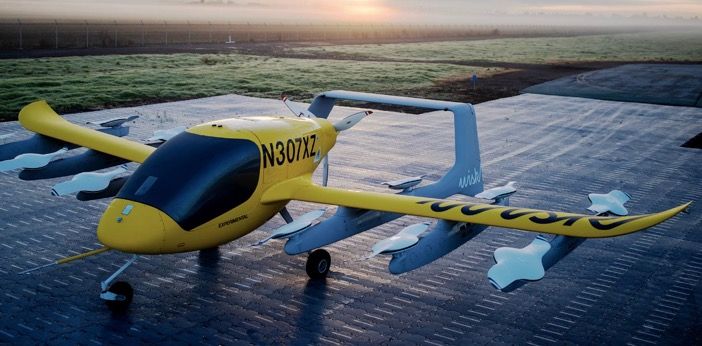
California-based Archer plans to begin delivering its five-seat aircraft in 2024 and was founded early last year. The aircraft will have a range of 60 miles (97km), a top speed of 150mph (241km/h) and will be powered by a 75kWh battery pack.
According to reports, the company is currently developing a two-seat prototype with six five-bladed tilted propellers forward of the wings and six two-bladed propellers on their rear.
Archer has gained media attention for its rapid progress in terms of its rapid funding expansion via a SPAC (special planned acquisition company) on the New York Stock Exchange via Atlas Crest Investment and an order for 200 aircraft from United Airlines. The company also has partnerships with companies such as Fiat Chrysler.

Archer has recruited heavily from rival eVTOL developers. The company lists on its team Tom Muniz, previously vice president of engineering at Wisk, Geoff Bower, previously chief engineer at Airbus’ now defunct air taxi company Vahana and Ben Goldman, previously at eVTOL-developer Joby.
Confidential files downloaded
Wisk claims Archer has been using Wisk’s proprietary IP by accessing without permission “thousands of highly confidential files containing very valuable trade secrets” and that Archer is using “significant innovations Wisk has patented”.
According to the lawsuit filed by Wisk the files were “surreptitiously” downloaded by one of ten engineers hired by Archer from Wisk last January “shortly before he announced his resignation and immediately departed to Archer”.
The lawsuit also alleges that another engineer downloaded numerous files containing test data, while yet another wiped any trace of his computer activities, in each case shortly before departing to Archer.
The company said in statement: “We welcome all responsible innovation and fair competition in the eVTOL market.
“Unfortunately it appears that Archer Aviation, a new entrant in the eVTOL market, is seeking to gain a foothold in this industry without respecting the rules of fair competition.
“This isn’t a step we wanted to take, but we must protect our IP and the decade’s worth of work and innovation we’ve put into Wisk.”
In response Archer said, “It’s regrettable that Wisk would engage in litigation in an attempt to deflect from the business issues that have caused several of its employees to depart. The plaintiff raised these matters over a year ago, and after looking into them thoroughly, we have no reason to believe any proprietary Wisk technology ever made its way to Archer.
“We intend to defend ourselves vigorously.”
“Archer has placed an employee on paid administrative leave in connection with a government investigation and a search warrant issued to the employee, which we believe are focused on conduct prior to the employee joining the Company. Archer and three other Archer employees with whom the individual worked also have received subpoenas relating to this investigation, and all are fully cooperating with the authorities.”


